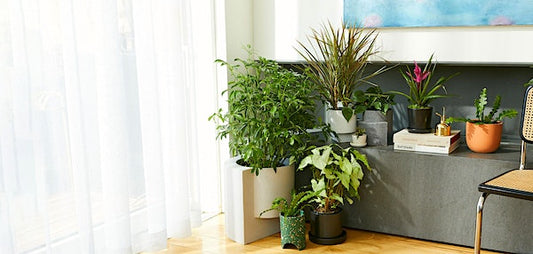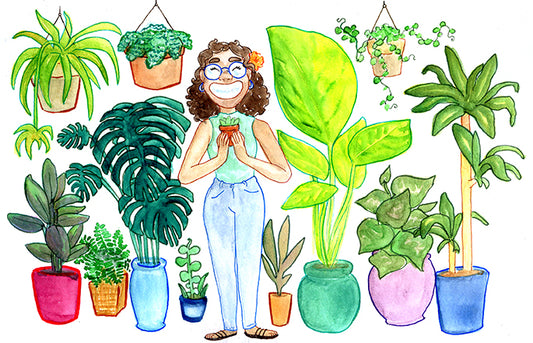Plants are a great addition to any home, and they offer a number of benefits for both physical and mental health. Here are some of the reasons why you should consider adding plants to your home:
- Improved air quality: Plants absorb carbon dioxide and release oxygen through photosynthesis, which helps to purify the air. This can be especially beneficial in homes with poor air quality, such as those located near busy roads or factories.
- Increased humidity: Plants release moisture through transpiration, which can help to increase the humidity levels in a room. This is important for respiratory health, as it can help to prevent dry air from causing problems such as dry throat and cough.
- Natural stress relief: The presence of plants has been shown to have a calming and soothing effect on our well-being. Being around plants can reduce stress levels, promote relaxation, and improve mood. They can create a sense of tranquility and connection to nature, which is especially beneficial in urban environments or areas with limited access to green spaces.
- Enhanced cognitive function: Studies have suggested that having plants in indoor spaces, such as homes or offices, can improve cognitive performance. Plants can enhance concentration, boost productivity, and increase creativity. They create a visually pleasing environment that promotes mental clarity and focus.
- Noise reduction: Plants can act as natural sound absorbers, helping to reduce background noise levels. They can absorb, diffract, or reflect sound waves, which can be beneficial in spaces where noise pollution is a concern. This can create a quieter and more peaceful atmosphere indoors.
- Aesthetically pleasing environment: Indoor plants can enhance the visual appeal of any space, adding a touch of beauty, color, and texture to the surroundings. They can be used as decorative elements to create a more inviting and pleasant atmosphere in homes. Plants also provide an opportunity for personal expression and can be incorporated into various interior design styles.
- Improved well-being and mental health: The presence of plants has been associated with improved overall well-being and mental health. They can promote a sense of nurturing and responsibility, provide companionship, and contribute to a positive living environment. Taking care of plants can also be a rewarding and therapeutic activity, offering a sense of purpose and accomplishment.
- Indoor gardening and food production: Having plants at home allows for indoor gardening, which can be a fulfilling and sustainable hobby. Growing herbs, vegetables, or fruits indoors provides a fresh and organic food source. It promotes self-sufficiency, connects individuals with the food they consume, and encourages a healthy lifestyle.
- Increased productivity and focus: Several studies have shown that the presence of plants in work or study environments can lead to increased productivity, improved focus, and reduced mental fatigue. Greenery in the workspace can create a more pleasant and stimulating atmosphere, enhancing overall performance.
- Educational and learning opportunities: Having plants at home offers a great opportunity for learning and educational activities, especially for children. They can learn about plant life cycles, photosynthesis, and gardening techniques. Nurturing plants at home can foster a sense of responsibility and environmental awareness.
Overall, having plants at home provides a range of benefits for physical health, mental well-being, and the overall aesthetics and ambiance of the living space. It is important to choose plants suitable for indoor conditions and to provide proper care to ensure their health and longevity.
I hope this blog has inspired you to add some plants to your home!




